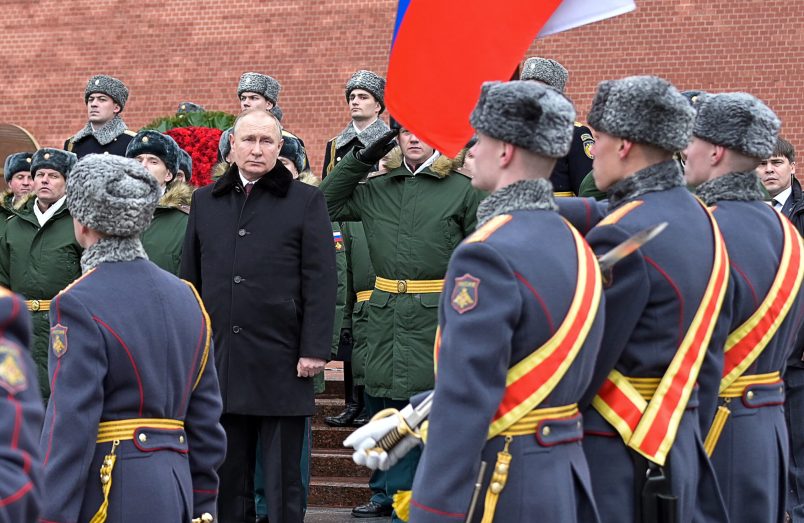Let me share a few further thoughts on the current situation in Ukraine, the progress of the Ukraine-Russia war and the chances for further escalation and/or expansion of the conflict. No one knows what’s coming next or how Russia might respond to its escalating mix of battlefield reverses and national humiliations. Without any specialized knowledge in the area I’m especially in the dark. So I rely on the opinion of people who I believe are knowledgeable and have good judgment. For me, in this area, one of those is Tom Nichols. (He’s a defense academic specializing in Russia/Soviet Union and nuclear deterrence policy.) In this thread last night he made clear he’s very concerned about the present situation and what is behind or what is signaled by the escalating rhetoric emanating from Moscow. Maybe not panic level, but very concerned. The salient point from him though is that the decisions about some erratic escalatory actions are going to be made in Moscow and there aren’t a lot levers we have to affect it. That’s a very sobering conclusion.
One of his points, which I agree with, is that we should be happy if we manage to get through this with only really high gas prices for a period of time.
There are all sorts of logical reasons and ones not tied only to in-the-lab-only logical principles why Russia won’t resort to some wild escalatory path. But as we know, people and countries do crazy things, especially under intense pressure. And the Russian government apparatus is under the most extreme sort of pressure. Russia embarked on this war to upend and rewrite a global and regional security order which it believed denied Russia its rightful place as a global great power. It sought to do that by the means which have increasingly characterized its policies for the last decade — making up for limited economic and military capacity with daring and risk-taking. The invasion revealed a Russian military dramatically less capable than even its skeptics seemed to have imagined and compounded the toxic stew of grievance and national humiliation which drove the effort in the first place. The world is on the line for what emerges from Russia’s chronically degenerate political culture, which is again a very sobering conclusion.
A few days ago John Judis reiterated the point that the U.S. needs to be looking for a diplomatic settlement to this war before it spins more out of control — either in escalation or geographic expansion. But as John recognizes, it’s not clear Russia is looking for a negotiated settlement, or at least not one that Ukraine or NATO sees as at all reasonable. The point where I agree with John is that the U.S. does itself no favors having the President call Putin a “war criminal” or announcing that our goal is weakening Russia militarily. The two points go without saying. But you don’t need to say everything out loud. Our actions speak for themselves and are speaking loudly enough.
When I’ve said this in other contexts people have told me, “We’re done pussy-footing around their feelings or worrying about provoking them. It’s time to speak clearly.” I’m not persuaded. This isn’t a matter of being worried about provoking Russia. We’re doing a ton to provoke them already. But in a highly dangerous situation you need to think clearly about what something accomplishes. Arming Ukraine to the teeth fulfills a very direct and immediate American interest. These comments don’t.
Final point. John also makes the point that it’s a mistake to characterize the war in Ukraine as part of some larger conflict between democracy and autocracy. Here I disagree. That is very much the case and it is important that we understand that reality of the situation. It is certainly folly, as he says, to imagine that “preventing war and conquest can only be achieved by the removal of autocratic and quasi-autocratic governments in scores of countries, including Russia, China, North Korea, Saudi Arabia, and Turkey.” But that’s not the point, the standard or at least in my mind the goal. It is not safe for the United States, either as a state or a democracy, to live in a world in which autocracy and authoritarianism are the dominant state systems or governing ideologies. We already see not only the military challenges but perhaps even more the way that the rising tide, the military and especially economic power of the world’s autocracies are reaching into the United States and contesting that battle within the United States. We don’t have to unseat or overthrow the world’s autocracies. That’s a crazy idea. It’s very much in our interests to do everything we can to maintain democratic governance, in its various permutations, as the dominant global system.


 Members-Only Article
Members-Only Article
